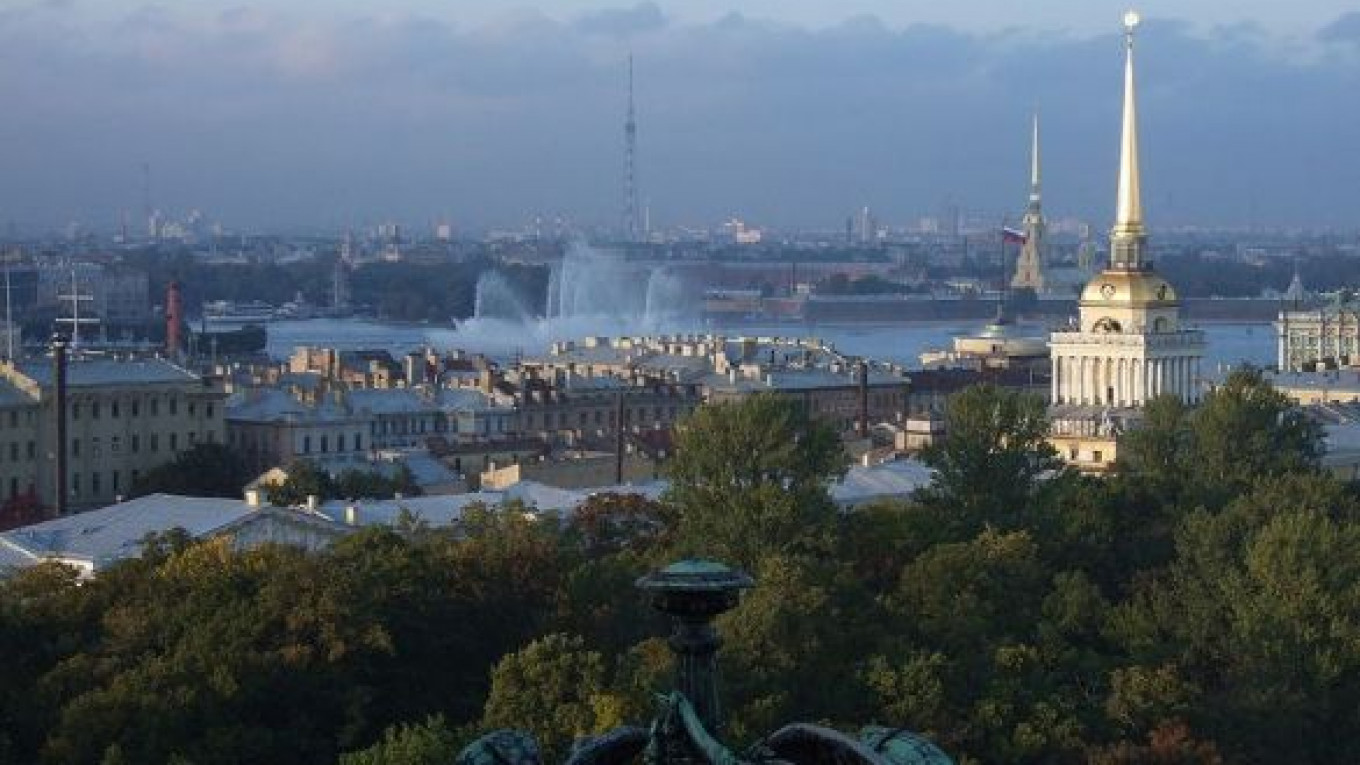ST. PETERSBURG — The Russians refused to play ball.
While the U.S. delegation stressed a forward-looking agenda and lauded the "reset" in relations between the two countries during a set piece panel at the St. Petersburg International Economic Forum on Friday, Russian executives repeatedly mentioned the Soviet Union, criticized American imperialism and griped about visas.
Russia's upcoming accession to the World Trade Organization and the likely abolition of the Jackson-Vanik amendment by U.S. lawmakers means a drive to increase trade between the United States and Russia is the "next big frontier in the reset," Ambassador Michael McFaul said.
In 2011 trade between the two countries was worth about $35 billion, Deputy U.S. Trade Representative Miriam Sapiro said. That is half the value of Russia's trade with the European Union.
McFaul said the figure was a "pittance" and urged businesses to help identify what must be done to boost trade and investment. Russian members of the panel, which included diplomats, VTB head Andrei Kostin and Rusnano's Anatoly Chubais, were quick to respond.
Russian Railways had experienced problems in transferring money from a project in Iran because of pressure from U.S. banks, company president Vladimir Yakunin said. Such problems were a result of the "imperial" attitude of the United States and an example of how "political pressure" could weaken economic ties, he added.
During his keynote speech to the forum a day earlier, President Vladimir Putin warned foreign countries about discriminating against Russian companies. He did not mention any specifics.
But McFaul said the United States welcomed Russian money. "We want Russian investment because Russian investment in America means jobs for Americans," he said.
If the Duma ratifies Russia's WTO agreement on July 4, the official accession that has been under negotiations for almost two decades will occur within 30 days. But U.S. business will only benefit from Russia joining the WTO if the U.S. Congress repeals the Jackson-Vanik amendment.
"We did not support WTO accession for Russia for so long so it could benefit French and German companies," said Sergei Kravchenko, Boeing's Russia chief.
There was little mention, however, of the brewing diplomatic spat over the Magnitsky Act, legislation under discussion by U.S. lawmakers that would ban Russian officials linked to Sergei Magnitsky, a lawyer employed by Hermitage Capital who died in a Moscow prison in 2009. Russia has promised an asymmetric response.
The Magnitsky Act, likely to be passed in parallel with the repeal of Jackson-Vanik, "could have a negative effect" on economic relations, said Andrew Somers, president of the American Chamber of Commerce in Russia.
An Embassy spokesman declined to allow a question about the Magnitsky Act to be put to McFaul by a Moscow Times reporter after the panel had ended.
A Message from The Moscow Times:
Dear readers,
We are facing unprecedented challenges. Russia's Prosecutor General's Office has designated The Moscow Times as an "undesirable" organization, criminalizing our work and putting our staff at risk of prosecution. This follows our earlier unjust labeling as a "foreign agent."
These actions are direct attempts to silence independent journalism in Russia. The authorities claim our work "discredits the decisions of the Russian leadership." We see things differently: we strive to provide accurate, unbiased reporting on Russia.
We, the journalists of The Moscow Times, refuse to be silenced. But to continue our work, we need your help.
Your support, no matter how small, makes a world of difference. If you can, please support us monthly starting from just $2. It's quick to set up, and every contribution makes a significant impact.
By supporting The Moscow Times, you're defending open, independent journalism in the face of repression. Thank you for standing with us.
Remind me later.







